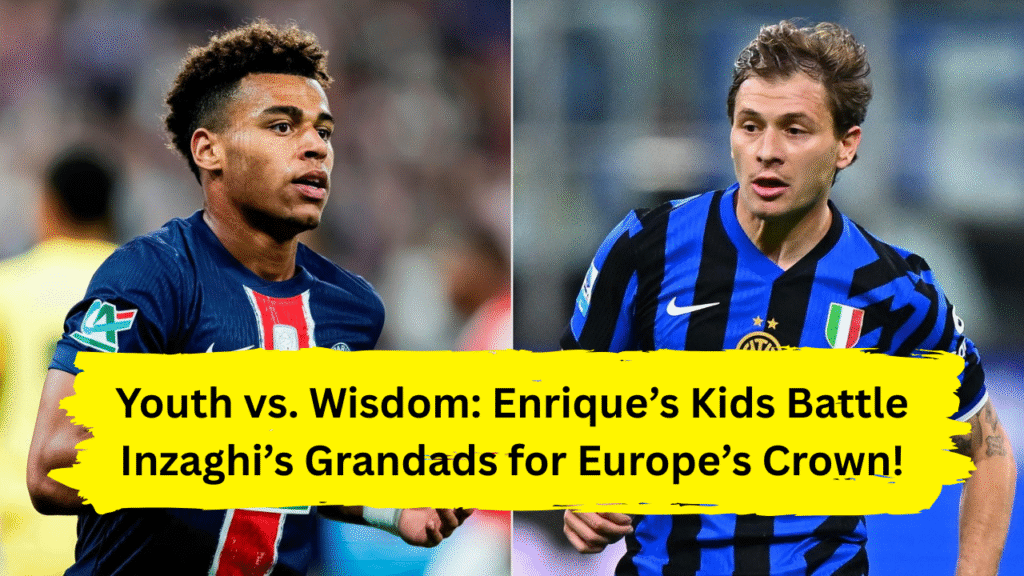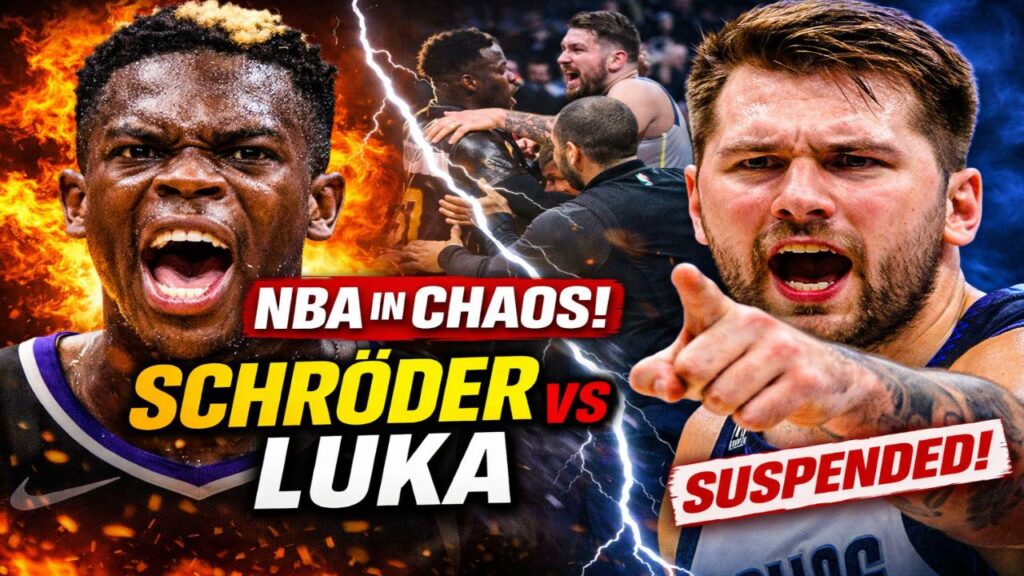The Allianz Arena in Munich isn’t just a stadium tonight; it’s a colossal philosophical battleground. On one side stands Luis Enrique’s Paris Saint-Germain – a whirlwind of youthful exuberance, tactical daring, and a record-shattering 18.6 shots per game lighting up the Champions League . On the other, Simone Inzaghi’s Inter Milan – a band of battle-hardened veterans, masters of control, boasting the tournament’s highest percentage of time spent winning matches at 50.8% . This isn’t merely a clash for the trophy; it’s a definitive showdown between football’s starkest philosophies: Brisk Youth vs. Seasoned Savvy.
PSG: The Blitzkrieg of Brisk Youth – More Shots, More Pace, More Risk
Forget the ghost of Mbappé. Luis Enrique has orchestrated a breathtaking tactical revolution at PSG, dismantling the Galáctico model brick by brick. Out went the singular superstars; in came a dynamic, high-octane collective built on relentless energy and fearless attacking waves. The numbers are staggering, almost violent in their intent: 33 goals scored (a club record), 1,074 shots attempted, 450 shots on target, and a staggering 18.6 shots unleashed per 90 minutes – the highest mark in the entire Champions League this season and a new zenith for the Parisians . This isn’t just attacking football; it’s an unrelenting siege.
The engine room is powered by prodigious youth. João Neves, just 20, is the tournament’s pressing machine, applying a jaw-dropping 824 high-intensity pressures and making 57 tackles – figures echoing the legendary Gennaro Gattuso at his peak . Alongside him, Vitinha operates as the metronomic heartbeat, completing a record 1,222 passes this campaign, a feat only surpassed by Xavi in his Barcelona pomp . Their dominance allows wing-backs Achraf Hakimi and Nuno Mendes to transform into auxiliary wingers, stretching defences impossibly thin. Up front, Ousmane Dembélé embodies the transformation – once inconsistent, now devastatingly direct, involved in a club-record 12 Champions League goals (8 goals, 4 assists) . Enrique’s 2-3-5 in possession is a calculated gamble: overwhelm, suffocate, shoot. Repeat. It’s football played at breakneck speed, trusting youthful legs and exuberance to simply outlast and outgun opponents .
Inter Milan: The Symphony of the 30+ Veterans – Control, Composure, Clinical Edge
Facing this hurricane stands a monument to experience, intelligence, and Italian defensive catenaccio reborn under Simone Inzaghi. While PSG fires artillery shells, Inter conducts a masterclass in controlled defiance. Their secret weapon isn’t raw pace, but ice-cool composure, reflected in that astonishing stat: Inter have spent 50.8% of their entire Champions League campaign winning matches – more than any other team . They don’t just react; they dictate the rhythm, even without the ball.
This is a team built on the bedrock of veterans who’ve seen it all. Only Atlético Madrid fielded older players more often, with a staggering 43.3% of Inter’s minutes logged by players aged 30 or over – totalling 6,151 minutes, the most by any Champions League side since Juventus in 2017 . At the heart stands the indomitable Francesco Acerbi (37). The cancer survivor isn’t just a defender; he’s a tactical anomaly, making lung-busting runs through the centre like a false nine, confusing markers decades his junior, and scoring that 93rd-minute semi-final equaliser against Barcelona . Behind him, Yann Sommer (36) performs miracles. Facing a tournament-high 214 shots, his +5.9 goals prevented above expected (xGOT) is a statistical marvel – the best mark in Europe . His 7 clean sheets lead the competition, built on positioning honed over 17 professional years.
Inzaghi’s 3-5-2 is a masterpiece of geometric flexibility. Wing-backs (like the explosive Denzel Dumfries, 5 goal involvements vs Barca) provide width. The midfield trio – Hakan Çalhanoğlu (a regista forged from a No. 10), Henrikh Mkhitaryan (36, the wise left-sider), and Nicolò Barella (constantly breaking lines) – are all elite ball-players . Crucially, Inter’s defenders don’t just defend; they rotate, carrying the ball into midfield, stretching the backline across the pitch, creating passing angles that bewilder even sophisticated pressing schemes like Barcelona’s . They absorb pressure by design, funneling attacks into low-danger zones (average shot xG faced: just 0.08), then strike with lethal, rapid transitions. They’ve scored 2+ goals in every single knockout game – a feat achieved only twice before by eventual champions .
The Munich Crucible: Where Philosophies Collide and Legends Are Forged
Tonight, these diametrically opposed worlds crash together under the Bavarian lights. The central question is brutal: Can PSG’s relentless shot volume pierce Inter’s veteran-imposed control? Can youth’s frantic energy sustain its intensity for 90+ minutes against minds programmed for high-stakes chess? Or will Inter’s mastery of the match clock, their ability to seize moments and then strangle the game, prove the ultimate weapon against the whirlwind?
- PSG’s Path to Victory: Overwhelm Early. Use their superior athleticism and pressing triggers (Neves’ 824 pressures!) to disrupt Inter’s build-up before it starts. Force errors high up the pitch. Leverage the Dembélé-to-Hakimi connection – their 13 line-breaking passes are a tournament-high duo stat – to bypass the compact block. Test Sommer relentlessly; hope the law of averages (18.6 shots!) eventually triumphs over his supernatural form. Marquinhos, potentially playing his 107th UCL game without the trophy , must marshal a flawless defensive display against Lautaro Martínez’s razor-sharp movement.
- Inter’s Path to Victory: Absorb and Annihilate. Stay compact, maintain defensive shape, and let PSG have the ball in non-threatening areas. Trust Sommer and the low xG per shot strategy. Exploit the inevitable spaces left by PSG’s marauding full-backs with rapid transitions targeting Dumfries or Dimarco. Utilize Lautaro’s movement (chasing a historic 10th UCL goal) and Thuram’s selflessness to create golden chances, not volume chances. Win the set-pieces – a proven Inter weapon . Most crucially, seize the lead. Once ahead, their 50.8% time-winning percentage shows they are masters at controlling the game state, squeezing the life out of opponents with tactical maturity.
Beyond the Trophy: A Legacy Defining Duel of Ideas
The stakes transcend silverware. For Luis Enrique, victory validates his radical cultural overhaul at PSG. It proves that systematic coaching, collective pressing, and trusting youth can deliver the ultimate prize, even after losing a generational talent like Mbappé. He’d join an elite group of managers to win the Champions League with two different clubs, completing a historic treble in the process . It’s the culmination of a project built on philosophy over galacticos.
For Simone Inzaghi, it’s about cementing his legacy as a tactical genius who defied financial gravity. Operating with a fraction of PSG’s budget, relying on shrewd free transfers (Thuram, Mkhitaryan, Taremi) and maximizing veteran potential, reaching a second final in three years would be monumental. Winning it would immortalize his band of 30+ warriors and silence any lingering doubts after Istanbul 2023. He’d avoid the unwanted record of joining the list of managers losing two consecutive finals .
Munich’s history whispers an omen for PSG: each of the four previous finals here (Forest ’79, Marseille ’93, Dortmund ’97, Chelsea ’12) crowned a first-time winner . Yet, Inter’s veteran grit, their unnerving ability to lead matches (50.8%), and their resilience forged in the fire of last year’s heartbreak make them a formidable roadblock to destiny.
Will Enrique’s whirlwind of youth, firing 18.6 shots per game, blow Inter away and usher in a new era? Or will Inzaghi’s veterans, masters of controlling the clock and the scoreboard, use their guile, their set-pieces, and Sommer’s miraculous gloves to write one last, glorious chapter for football’s old guard? One philosophy must yield. The greatest club prize in football awaits the victor of this ultimate tactical duel.


